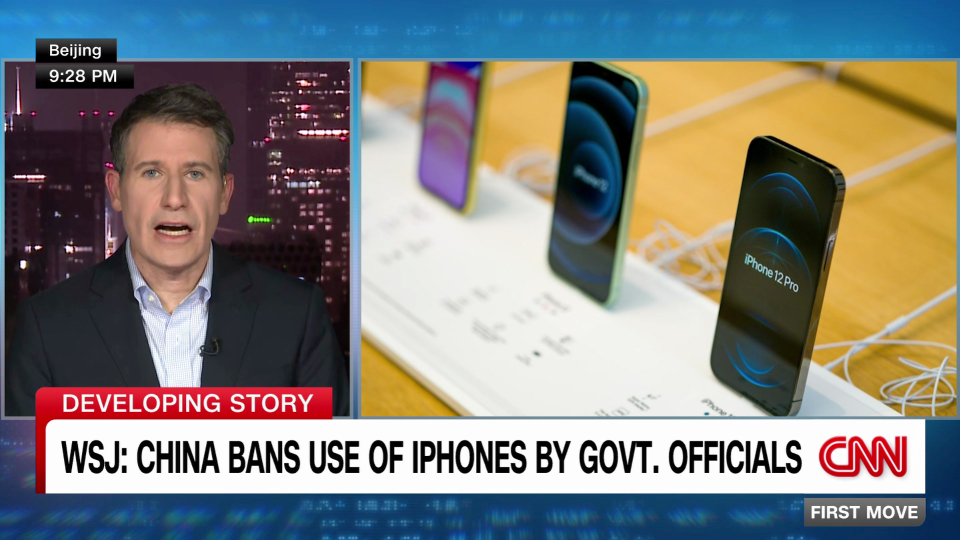China hasn’t issued any laws or rules to ban the use of iPhones or any other foreign phone brand, a Chinese government spokesperson said on Wednesday.
“We have always been open to foreign companies and welcome them to seize the opportunities and share the fruits of China’s economic development,” Ministry of Foreign Affairs spokesperson Mao Ning said at a press conference in Beijing.
She added that China has noticed “many media reports on the security incidents of Apple’s iPhone,” and that the country “attaches great importance to information and cyber security.”
Mao did not elaborate. She also urged foreign cellphone companies in China to follow the country’s privacy laws and to prevent “any person or organization” stealing data stored in their customers’ phones.
Last week, The Wall Street Journal reported that China had banned the use of iPhones by central government officials, citing unnamed people familiar with the matter. The report triggered a drop in Apple’s shares -— the stock suffered its largest daily loss in a month.
The White House said on Wednesday it was watching the developments with “concern.”
“It seems to be a piece of the kinds of aggressive and inappropriate retaliation to US companies that we’ve seen from the PRC in the past, that’s what this appears to be,” John Kirby, National Security Council spokesman, told reporters during a news conference, referring to the People’s Republic of China.
“But the truth is, we don’t have perfect visibility on exactly what they’re doing and why, and we certainly would call on them to be more transparent about what they’re seeing and what they’re doing,” he said.
Over the past few months, a growing list of American and international consulting companies have been ensnared in Beijing’s widening crackdown on what it perceives as national security risks.
In March, Chinese authorities closed the Beijing office of Mintz Group, an American corporate due diligence firm, and detained five of its local staff. The company was later fined about $1.5 million for allegedly conducting unapproved statistical work in the country.
In April, police questioned staff at the Shanghai offices of global consulting giant Bain & Company. A few weeks later, state media released details of multiple raids on the offices of Capvision, an international expert network firm with headquarters in Shanghai and New York, by state security forces.
Apple is one of the highest profile and most established American brands in China. It is the largest foreign market for the company’s products, and Chinese sales represented about a fifth of the company’s total revenue last year. Apple hasn’t replied to a request for comment.
The company doesn’t disclose iPhone sales by country, but analysts at research firm TechInsights estimate that there were more iPhone sales in China than in the United States last quarter. Apple also produces the majority of its iPhones in Chinese factories.









